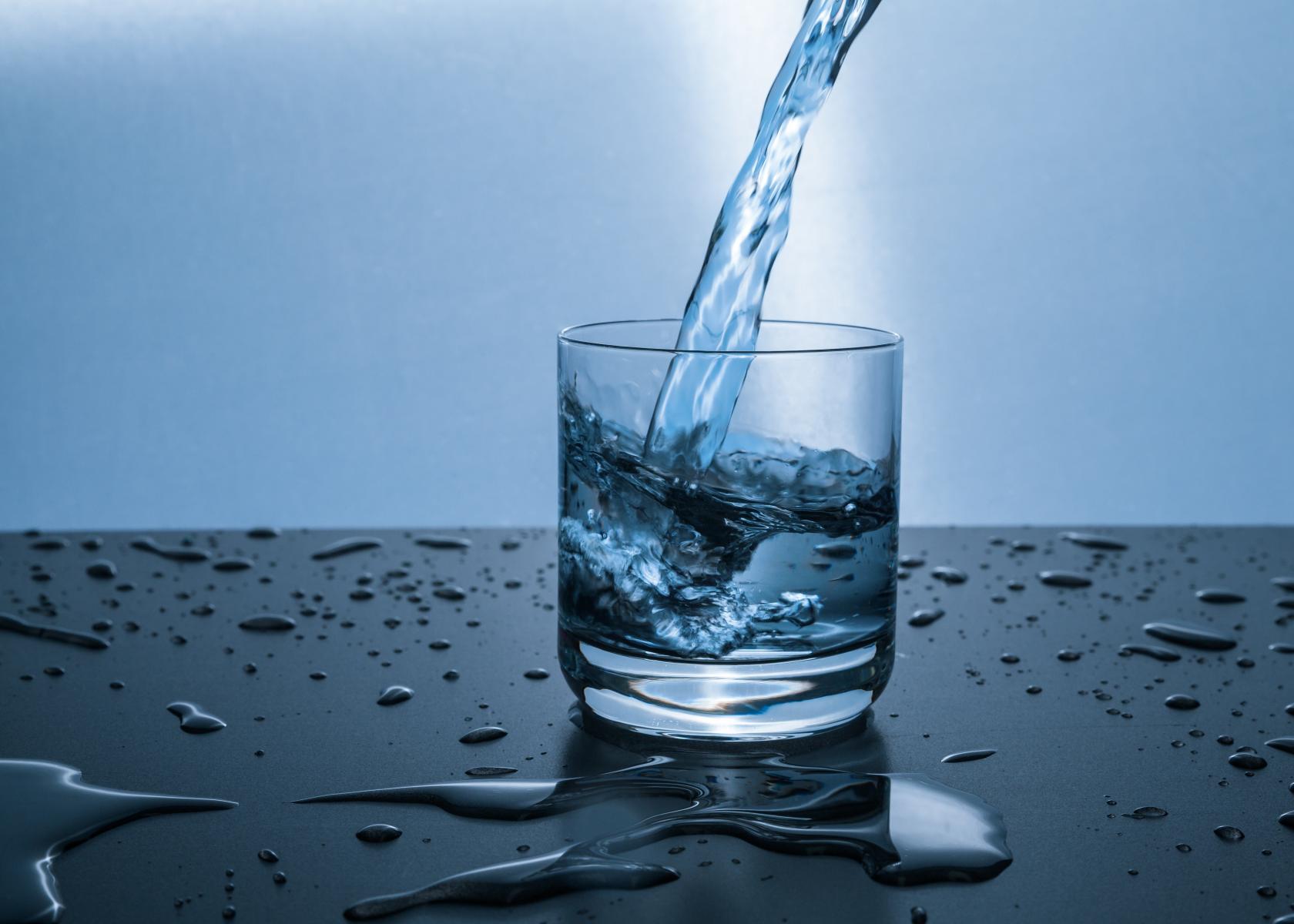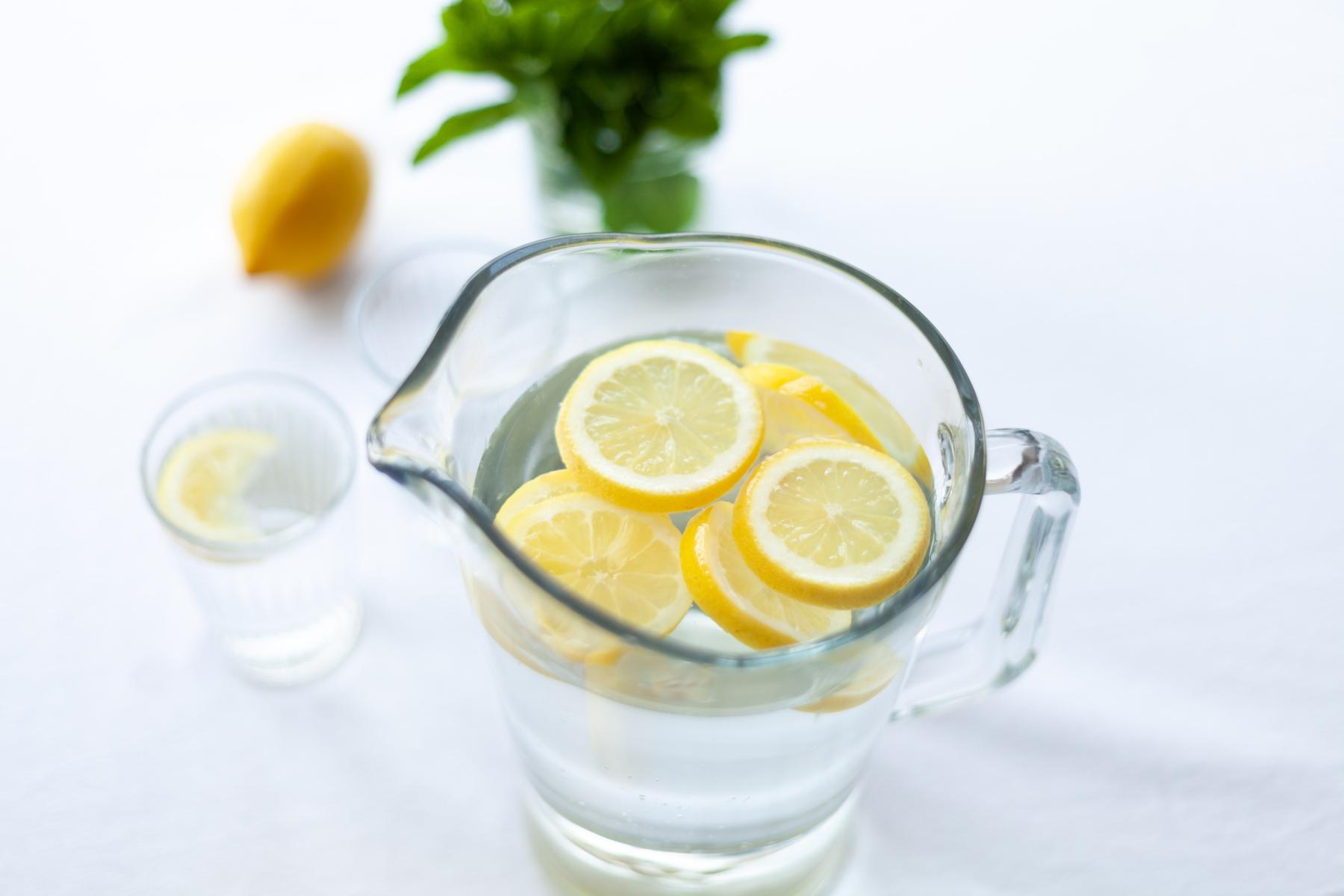Adequate hydration is essential for our health. Especially during the summer, extra fluid can be lost if it is hot and we are sweating, so it’s important to be consuming enough fluid to replenish our fluid losses.

Peyton Millard, Dietetic Intern, 2021
Monday, May 23, 2022
Why is staying hydrated so important?
Adequate hydration is essential for our health. Research has shown that being adequately hydrated can benefit our tissues and joints, can aid in digestion and nutrient absorption, can boost our cognitive function and more! Especially during the summer, extra fluid can be lost if it is hot and we are sweating, so it’s important to be consuming enough fluid to replenish our fluid losses.

How much fluid should we be consuming daily?
The U.S. National Academies of Sciences, Engineering, and Medicine recommends 11.5 cups (92 ounces) a day for women 15.5 cups (124 ounces) a day for men.
| Tip #1 for increased fluid intake: increase your consumption of fruits and vegetables. |
This includes fluids from water, beverages like coffee, juice and tea, and from food. It is estimated that you get an average of 20 percent of your water from the foods you eat. This would mean that men need to consume about 12 1/2 cups (100 ounces) of water from beverages, and women, about 9 cups (72 ounces) from beverages.
How much water you need depends on many different factors such as your health, activity levels and environment.
Is your diet high in sodium (salt)? Do you live in a place that is hot? Are you active throughout the day? Are you experiencing diarrhea or a fever? All of these factors may require you to increase your fluid intake due to the fluid that may be lost from your body throughout the day.
| Tip #2 for increased fluid intake: add fresh fruit juice to your water to give it some flavor. |
How do I know if I am consuming enough fluids?
Using your urine color as your guide can be helpful to know if you’re drinking enough. Aim for pale, clear urine. If your urine is dark yellow or cloudy, it’s time to drink a little more water!
What is dehydration and why do we want to avoid it?
Dehydration is the result of your body not having enough water or fluid. Because water is crucial for so many of our bodily functions, dehydration can be extremely dangerous. Mild dehydration caused by exercise or heat can have negative effects on both your physical and mental performance. Severe dehydration can result in a number of complications including swelling in your brain, seizures and kidney failure.
What about over-hydration?
Overhydration can lead to water intoxication. This occurs when the amount of salt and other electrolytes in your body become too diluted. If your electrolytes drop too low too quickly, it can be fatal. Therefore, you may need a sports drink or something similar to replenish electrolytes after difficult or strenuous activity.
Digestion & Nutrient Absorption
In addition to helping with the breakdown of food, water also helps dissolve vitamins, minerals, and other nutrients from your food and then delivers these vitamins and minerals to the rest of your body to use.

Cognitive Function
Research has shown that not drinking an adequate amount of water can negatively impact your focus, alertness, and short-term memory.
Energy Boost
Drinking adequate amounts of water may help boost your metabolism and reduce fatigue. A boost in metabolism has been associated with a positive impact on energy level.
Tissues & Joints
Fluid consumption acts as a lubricant and can help to cushion your joints, spinal cord and tissues. This may help lessen the discomfort caused by physical activity.
| Tip #3 for increased fluid intake: drink a glass of water (8oz) after every bathroom break. |
Waste Excretion
We are constantly losing fluid from our bodies through sweat, urination, and bowel movements. Having adequate hydration can help our kidneys filter out waste through both urination and bowel movements and can also aid our bodies in regulating our internal body temperature through sweat. Preventing dehydration can help keep us from becoming constipated, as well.
Myth buster
Myth: Caffeinated drinks don’t help you hydrate and instead they cause dehydration because they are a diuretic and make you urinate more.
Buster: Research shows that the diuretic effect of these beverages is weak, but that they can cause extra urination in some people. However, drinking coffee or tea will still help to add water to your body.
| Tip #4 for increased fluid intake: keep a water bottle with you so you can refill it as needed. |
Fruits & Vegetables
Fruits and vegetables also contain a lot of water which aids in our daily fluid intake! Here are just a few of the many fruits and vegetables with a high water content.
Fruits: Watermelon 92% Strawberries 92% Cantaloupe 90% Oranges 88% Vegetables: Cucumber 95% Lettuce 96% Zucchini 94%
Hydrating Homemade Fruit & Yogurt Popsicles
To keep you cool and hydrated in the summer heat!

|
Servings: 6 Nutrition facts per serving Calories: 81 Fat: 1.5g Sodium: 72mg Carbohydrates: 16g Sugar: 12g Protein: 3g |
Ingredients:
|
|
Directions: First, wash all your fruit, cut them to your preferred size and add them to your popsicle mold. Next, in a small bowl, mix together the coconut water, Greek yogurt and honey until well combined. Fill each popsicle mold with the mixture and top with a popsicle stick. Place in the refrigerator for at least 2 hours before serving. Enjoy! |
|
References
Adan, A. (2012). Cognitive Performance and Dehydration. Journal of the American College of Nutrition,31(2), 71-78. doi:10.1080/07315724.2012.10720011
Gordon, B. (n.d.). How Much Water Do You Need. Retrieved from https://www.eatright.org/food/nutrition/healthy-eating/how-much-waterdo-you-need
Liska, D., Mah, E., Brisbois, T., Barrios, P. L., Baker, L. B., & Spriet, L. L. (2019). Narrative Review of Hydration and Selected Health Outcomes in the General Population. Nutrients,11(1), 70. doi:10.3390/nu11010070
Maughan, R. J., & Griffin, J. (2003). Caffeine ingestion and fluid balance: A review. Journal of Human Nutrition and Dietetics,16(6), 411-420. doi:10.1046/j.1365-277x.2003.00477.x (n.d.). Retrieved from https://www.nationalacademies.org/news/2004/02/report-sets-dietaryintake-levels-for-water-salt-and-potassium-to-maintain-health-andreduce-chronic-disease-risk



